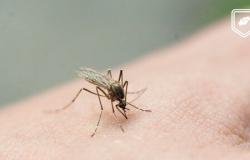The Pharmacovigilance Center Lareb received three reports of euglycemic diabetic ketoacidosis with dapagliflozin or empagliflozin shortly after a gastric bypass, an operation against obesity. This is a known side effect of these medicines. The risk of this side effect is greater after major surgery, including gastric bypass. Therefore, these drugs should be stopped around major surgery.
SGLT2 inhibitors
Empagliflozin and dapagliflozin are SGLT2 inhibitors. These are medicines to treat type 2 diabetes, heart failure or kidney damage. In euglycemic diabetic ketoacidosis there is acidification of the blood with normal blood sugar levels. This can cause symptoms such as vomiting, abdominal pain, feeling of thirst, a sweet smell of the breath, a different smell of urine or sweat, confusion and rapid and deep breathing.
Stop at major surgery
It is a rare, sometimes life-threatening side effect of SGLT2 inhibitors. The package leaflet states that these medicines must be stopped when hospitalized for major surgery. The Dutch Obesity Clinic advises not to restart SGLT2 inhibitors in type 2 diabetes after a gastric bypass.
Reports Side Effects Center Lareb
Lareb received two reports about dapagliflozin and one report about empagliflozin. The patients were taking the SGLT2 inhibitor for type 2 diabetes. In these patients, the SGLT2 inhibitor had not been stopped or had not been stopped in time around the gastric bypass. The euglycemic diabetic ketoacidosis occurred several days to weeks after gastric bypass. All three patients were hospitalized due to the side effect. In two cases, admission to intensive care was required. All three patients have recovered or are recovering.






